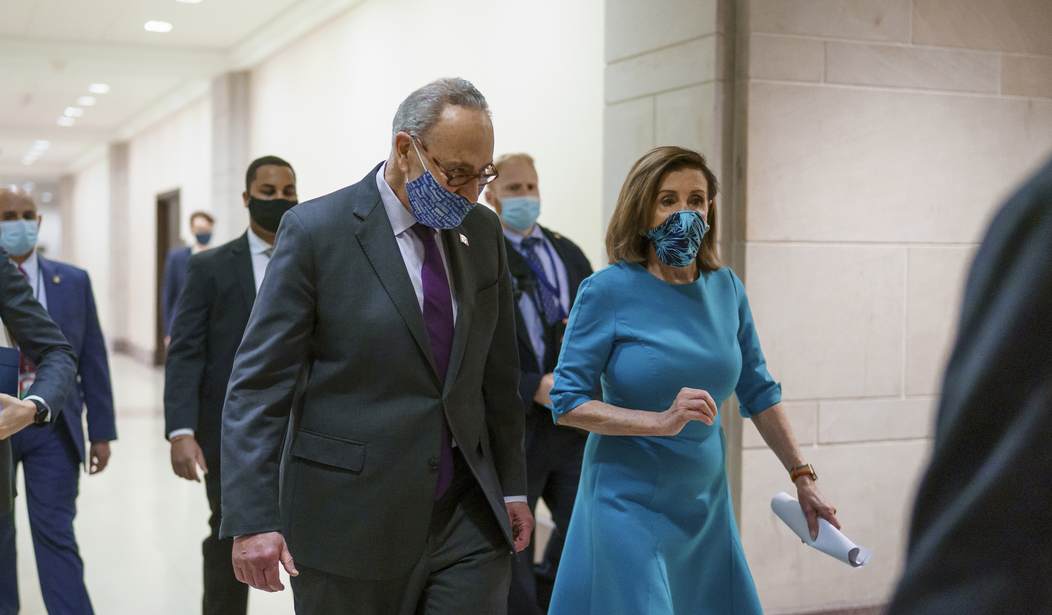The U.S. Congress, in a rare example of bipartisanship, recently passed a $2.3 trillion omnibus/COVID-19 relief bill. As usual, there is a preposterous amount of unnecessary, wasteful spending contained in the $1.4 trillion omnibus spending bill.
However, that is not the worst aspect of this behemoth bill. In the $900 billion portion of the bill dedicated to COVID relief, Congress voted to send $600 stimulus checks to Americans who made less than $75,000 based on their 2019 tax returns.
Also contained in the COVID relief package is an extension of unemployment benefits and hundreds of billions for the Paycheck Protection Program.
Yet, the $600 cash payments, which Treasury Secretary Steven Mnuchin said would be ready to go in early January, represent all that is wrong with Congress and their approach to the pandemic’s economic meltdown, which the government is responsible for in the first place.
First, $600 or $1,200 is unlikely to improve the circumstances of an individual or family suffering from months of unemployment due to government lockdowns. A one-time payment of $600 is not a solution to the financial turmoil that millions of Americans have experienced for months.
Second, the shotgun approach that Congress has decided to use to disperse the $600 checks is far from efficient and does not in any way specifically address those who have been most impacted by the lockdowns.
For example, because the payments are based off of last year’s tax data, by definition, they fail to consider the pain and suffering felt by millions in 2020, when the pandemic began.
For instance, a restaurant manager who had a good job and stable income in 2019, before the virus hit the United States, would likely be ineligible for the token $600 payments, even though the restaurant industry has been devastated by the pandemic.
On the other hand, college students in 2019, who most likely made less than $75,000 in 2019 but who are gainfully employed as of 2020, would reap the rewards of a $600 check from Uncle Sam.
Obviously, the out-of-work restaurant employee needs the $600 much more than the newly employed college graduate. However, the stimulus payments, as currently constructed, completely fails to take these circumstances into account.
There are endless scenarios one could easily imagine in which the stimulus payment program falls woefully short of what should be its intended purpose: helping those who have been harmed by COVID-associated lockdowns.
For example, a retired American who might have hundreds of thousands, if not millions, in retirement accounts, would receive a $600 check. As would all Americans who earned less than $75,000 in 2019 but received a pay raise that would put them over the $75,000 threshold in 2020.
Yet, this doesn’t matter to our nation’s lawmakers. They would rather use the lazy, one-size-fits-all approach wherein all Americans who earned less than $75,000 before the pandemic began, regardless of their current circumstances, receive a few hundred bucks from the government.
Perhaps Congress should consider the source of the economic problem that is devastating the country, the draconian lockdowns, instead of taking the easy way out by just sending checks.
If Congress really wanted to help those most in need, they would work relentlessly to reopen the nation’s economy and the nation’s public schools. However, that would be much more difficult to do than just sending checks.
Unfortunately, Congress lacks the temerity that is needed to address our nation’s most pressing problems, primarily the devastation wrought by arbitrary lockdowns.
As of July, Congress’ approval rating stood at a pathetic 18 percent. Although it is difficult to imagine that the American public’s confidence in the nation’s legislative branch could get any lower, based on their handling of this latest spending and coronavirus relief bill, we could see this number in the single digits quite soon.
Chris Talgo ([email protected]) is an editor at The Heartland Institute.













Join the conversation as a VIP Member